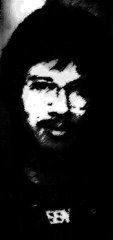During the Nobel Peace Prize acceptance speech, Dr Yunus uses the word "we" instead of I. He did not actually win the prize -- "we" did. His message was very much focused on empowerment and education.
The prize was received by a woman who is one of the 7 million Grameen Bank borrowers (they are also the owners).
Dr Yunus is not really an economist or social entrepreneur. He is a teacher.
He began the work that led to the Nobel acting as a teacher, a Professor of economics touched by the misery of forty-two people in the village next to the university. Their lives were being destroyed by money-lenders. And the sum required to pay off the leeches? A mere twenty-seven dollars! He paid off the money lenders, and after failing to convince the bank to lend money to the poor and put the leeches out of business, he started doing it himself, and thus the Bank and the global micro-credit movement was born.
But what sticks in the mind from his many moving tales of real people, in their thousands and millions, relieved from misery by what is essentially simple act of kindness.
He described their early attempts to loan money to women, and the resistance they faced from the women themselves. "Oh no no no," they would say, "I don't know anything." "And the more they protested and said they didn't know anything, the more we wanted them," says Dr Yunus.
He had emphasised the obvious, that money was entirely secondary to the central business of education in its classical sense, educare, drawing something wonderful out of the essential person.
300,000 call centre ladies now make good livings keeping people connected; 85,000 beggars are now part of a program that teaches them how to swap out retail sales; 13,000 children of the the seven million illiterate borrowers are now taking out higher education loans and going on to engineering, medical school, even PhD's.
Dr Yunus lives a very simple life in Dhaka, wearing clothes made of a simple cotton cloth that he designed to help poor textile workers.
notes: special loan for the poor includes:
1. very small amount given without any collateral
2. loans repayable in weekly instalments spread over a year
3. eligibility for a subsequent loan depends upon repayment of first loan
4. individual, self chosen, quick income generating activities which employ the skills that borrowers already posses
5. close supervision of credit by the group as well as the bank staff
6. stress on credit discipline and collective borrower responsibility or peer pressure
7. special safegaurds through compulsory and voluntary savings to minimise the risks that the poor confront
8. transparency in all bank transactions most of which take place at centre meetings.

1 comment:
The story of Dr Yunus and Grameen Bank is a very inspirational one. This kind of story is very hard to come by nowadays, isn't it?
Post a Comment